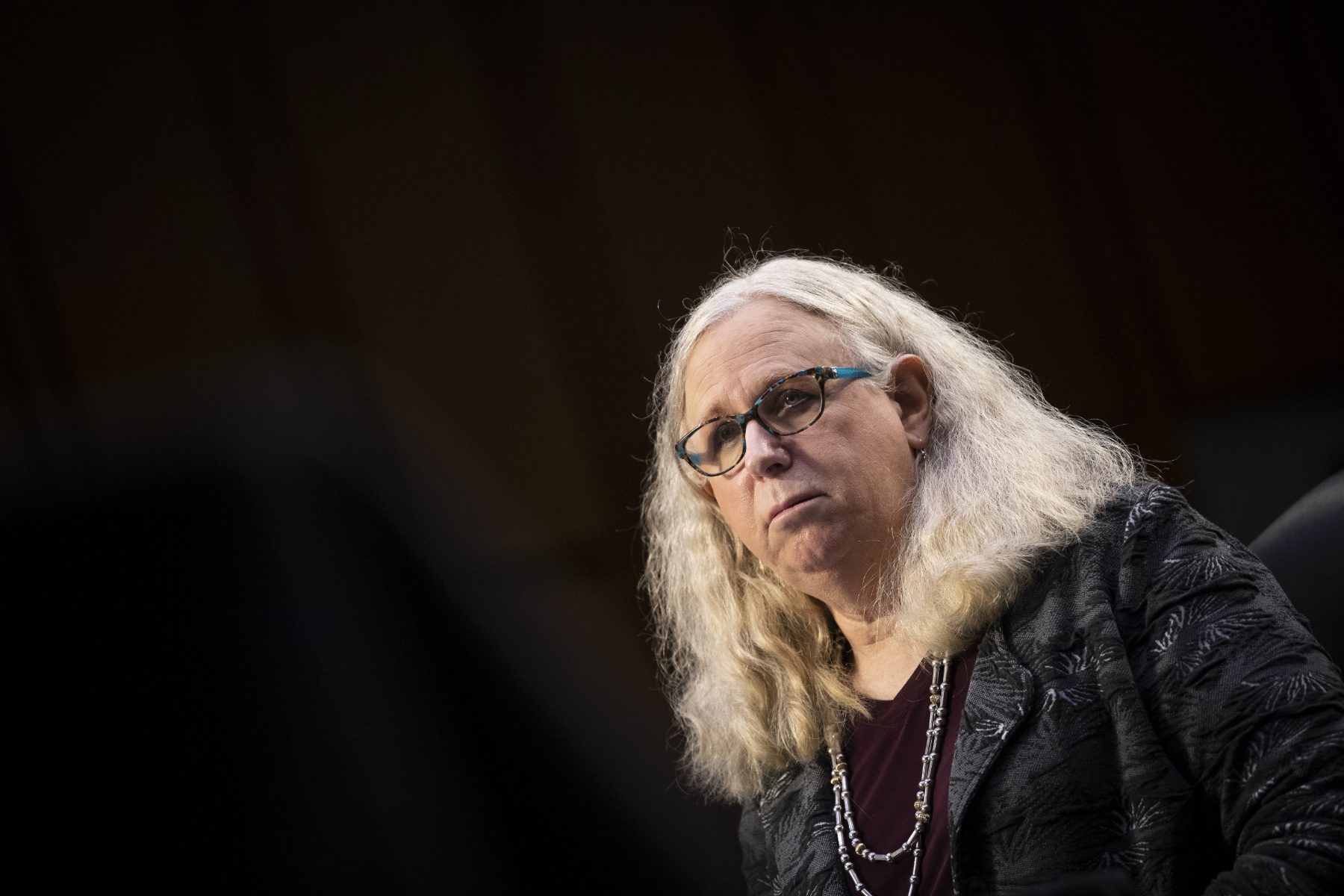Dr. Rachel Levine, the first transgender person to ever be confirmed by the U.S. Senate to a Cabinet-level position, said she channels the transphobia that she’s experienced into helping people.
In a conversation as part of The 19th Represents Virtual Summit, Levine, the assistant secretary of the Department of Health and Human Services, said she tries to ignore discriminatory remarks as much as possible, instead focusing on responding to the pandemic and other public health issues.
“I am really able to channel that emotion into my work, and to sublimate those emotions, and it serves to motivate me more in terms of my work in public health, and my work in terms of health equity for our community,” she told The 19th’s Orion Rummler.
During Senate hearings before her historic confirmation earlier this year, U.S. Sen. Rand Paul of Kentucky used transphobic language to question Levine about gender-affirming medical care for youth. At The 19th’s summit, Levine was asked if she expected to be singled out in this way during confirmation hearings and how often these experiences happen to her.
Levine said when she served as Pennsylvania’s physician general and then the state’s secretary of health, there was a lot of interest from the media about her being an out trans woman, but “it wasn’t as discriminatory.” But during the pandemic, when public health authorities have faced enormous pushback from the public on ways to mitigate COVID-19, she felt that the microscope on her was even more intense.
“State and local public health officials, as well as federal public health officials, took a lot of scrutiny and pushback,” she said. “Mine was doubled by being an openly transgender woman and it was blatantly transphobic.”
Levine said when she was nominated to be assistant secretary, she did expect “to see a lot of pushback,” but she had been able to compartmentalize.
“I was able to do that and really stay focused on my mission and my vision in terms of public health,” she said.
Levine said part of her work under the Biden administration has been to ensure internal policy changes around health equity. She noted that through her work with others within the agency, the Office of Civil Rights has reinterpreted a section of the Affordable Care Act to clarify that someone can’t discriminate on the basis of sex, including sexual orientation and gender identity. She’s working to implement that interpretation across the agency.
Levine said it’s also important to advocate for LGBTQ+ people, particularly “vulnerable trans youth who are really under siege across the country” because of legislation in statehouses related to participation in youth sports or banning trans kids from accessing gender-affirming medical care.
“I think it’s really incumbent upon all of us to push back against those discriminatory laws,” she said.
Levine was asked during The 19th’s conversation about how she feels about being the first out trans person to be confirmed by the Senate. She called it a “celebration,” noting the importance of making sure she’s not the last.
“I’m really heartened by the knowledge that I won’t be the last and I’m sure there’ll be many more openly trans people who are nominated and then confirmed to these positions,” she said.





